I’m sure you’re familiar with the saying “A dog is for life, not just for Christmas”. Adding a dog to your family is a big responsibility, and you should think long and carefully before you decide. Is getting a dog the right thing for you? This article is a starting point to help you understand what getting a dog really means, so that you can make the right decision.

A dog is not a Christmas present!
And the first question you ask yourself is this: Why do you want a dog?
Your Lifestyle – Is There Room For a Dog In Your Life?
Dogs are wonderful companions, and will bring a lot of love and joy into your life. But they also need your time and commitment, not just when you first bring them home, but for the whole of their lives.
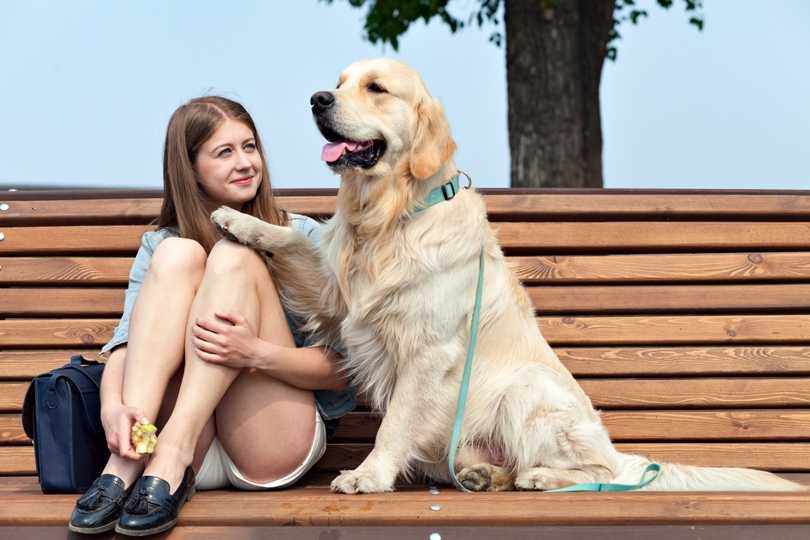
Dogs can be the best companions in the world
You also need to consider the cost; not just of buying the puppy or dog, but the ongoing costs of food, bedding and grooming equipment, veterinary fees and pet insurance; as these can mount up to a considerable sum.
Is getting a dog the right thing for you? Here are some questions to consider.
Can you afford a dog?
The Kennel Club gives a rough estimate of £25 per week to keep a dog, but this can vary a lot according to the dog’s size and level of health. It may also increase as the dog ages, with the possibility of more veterinary fees and the expense of ongoing medication.
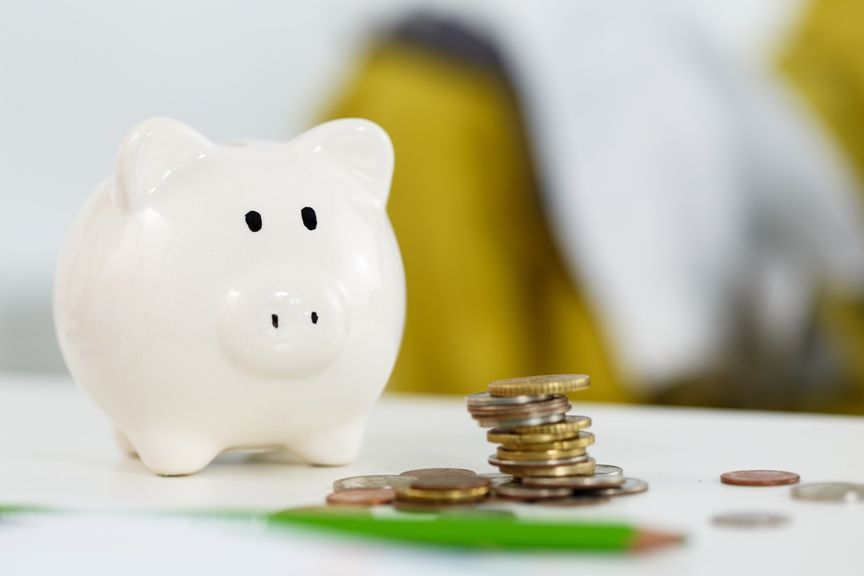
Are you sure you can afford a dog?
Some of this can be mitigated by pet insurance; but insurance costs rise as a dog grows older, and may not cover every eventuality (always read the small print).
Can you make a lifetime commitment to care for a dog?
A dog’s average lifespan is around 12 – 15 years (it can be less for larger dogs). Remember too that dogs grow old, and may need more ongoing care or even nursing from you as they age.
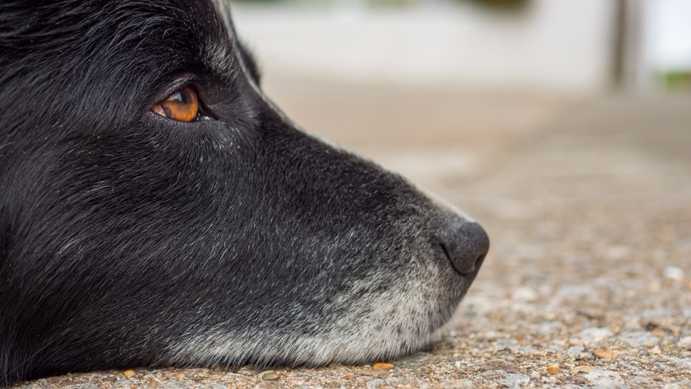
Older dogs often need extra care; even nursing. They may also need ongoing medication. This means more veterinary bills…
Is your home suitable for a dog?
Even a small dog needs space in which to run around and play, while a large dog needs a home which is big enough for him to move around and lie down in without feeling cramped – and without you having to fight teach other for space!
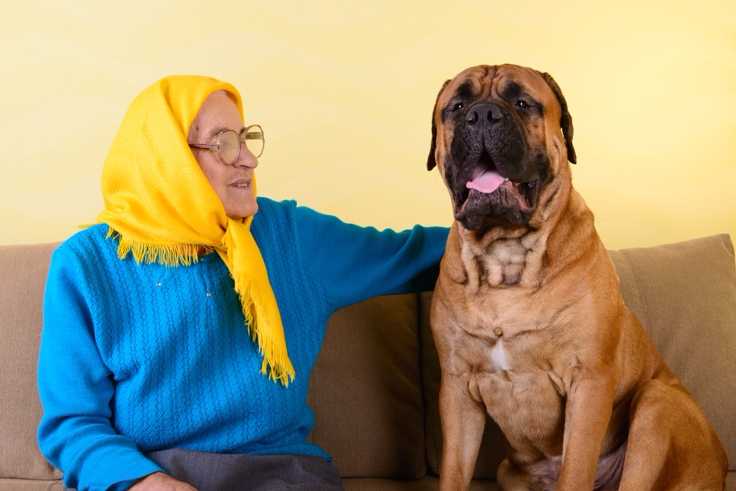
It’s a good idea to cut your dog according to the size of your sofa…
Do you have a secure and private garden?
All dogs need a safe outside space where they can exercise and relieve themselves; and for obvious reasons a communal garden is not suitable.
Will there be someone at home to look after the dog?
Leaving a dog alone regularly for long periods of time is unfair to the dog, and will have negative effects on his behaviour. A bored and lonely dog can create havoc in the home, and acquire long-term behavioural problems as well.

Canine boredom can take many forms
Are you an active person?
Your dog will need regular exercise: are you sure you can commit to walking him every day, whatever the weather?
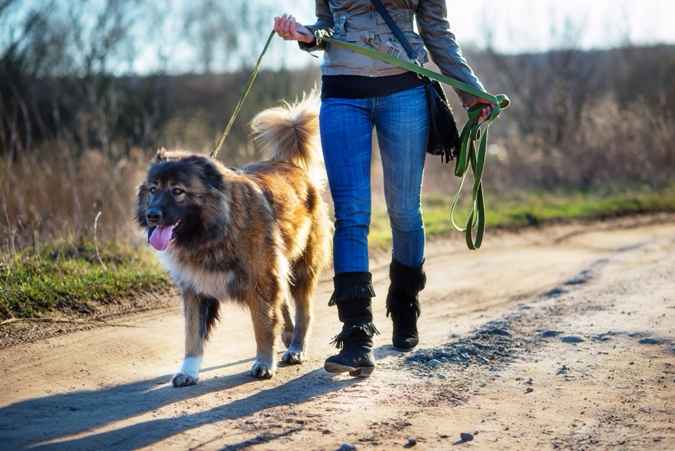
All dogs need exercise; large dogs and working breeds will need a LOT of exercise…
Do you have the time and patience to train a dog, and to groom and care for him?
A puppy will need months of devotion to house-train and socialise him, and a medium or long-haired dog will need daily care and grooming.
What about holidays?
Do you plan to take your dog with you?
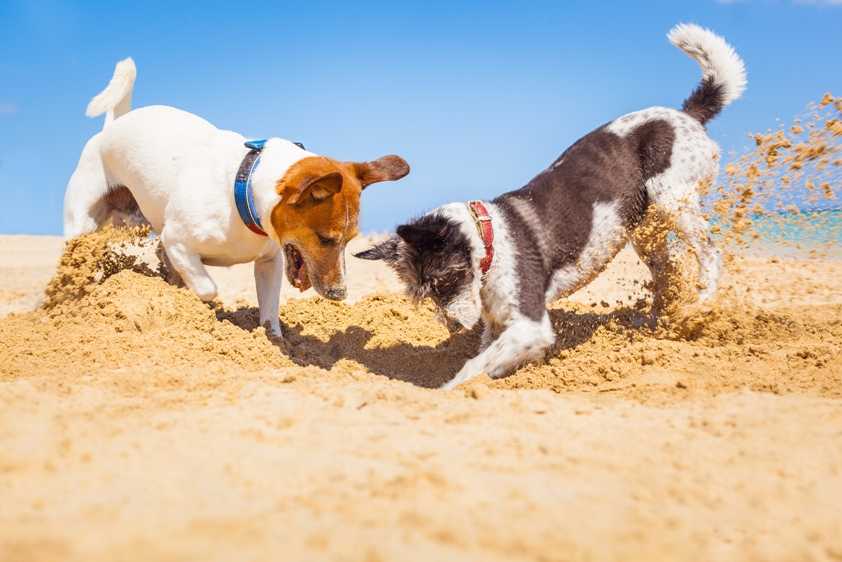
Oh I do like to be beside the seaside! 
It’s so relaxing… 
You can join in… 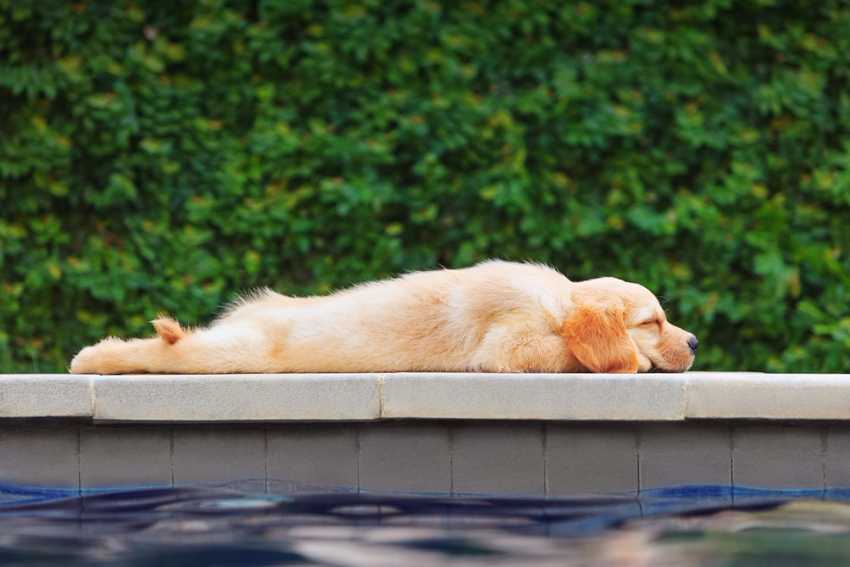
…or chill out…
Everyone loves a holiday…even your dog
And if not, can you provide suitable care for him while you are away?
Think too about the future. Can you answer YES to all these questions for the whole of the dog’s life, 365 days a year?
Is getting a dog the right thing for you? If you have considered these things carefully, and are still confident about dog ownership; then read on.
What Is The Right Dog For You?
Puppy or adult? Pedigree or crossbreed? A rescue dog, or direct from the breeder? These are the next things you must think about.
What breed?
There are hundreds of different breeds of dog, and it would take you a long time to learn about all of them. As a general rule though, a larger dog will be more expensive to keep and will need more space and exercise.

There are over 300 different breeds of dog in the world…
The positive reason for choosing a pedigree dog is a high degree of certainty about the dog: its nature, its temperament, and how well it will fit into your family situation. The negative aspect is the chance of inherited health problems; but these risks can be considerably reduced by careful selection.
Crossbreeds are a fashionable choice right now, but the risk is that each individual dog can only be known by experience. It is impossible to postulate a “typical” crossbreed, since each dog varies so much, depending on which part of its genetic inheritance is dominant. You should familiarise yourself with the characterisics of both parents, and be prepared for the offspring to lie anywhere on the scale between them.
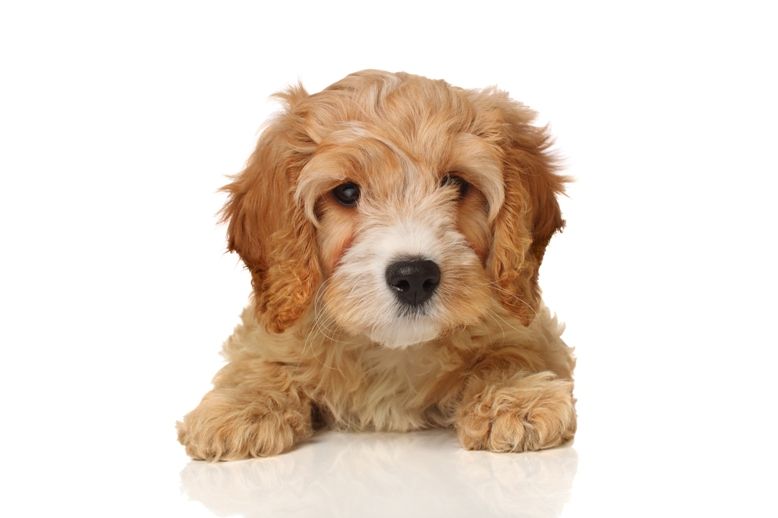
Cavapoo puppy 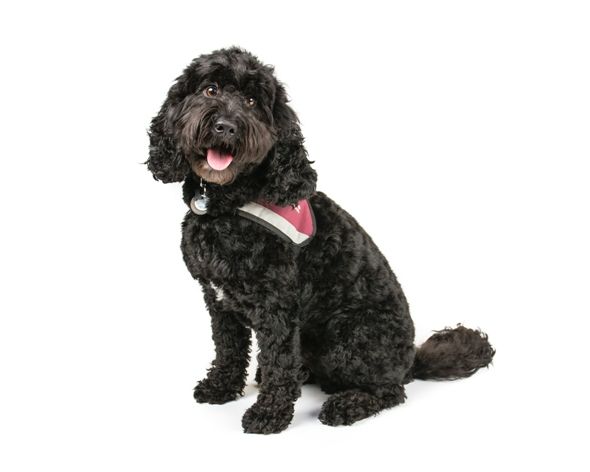
Cockapoo 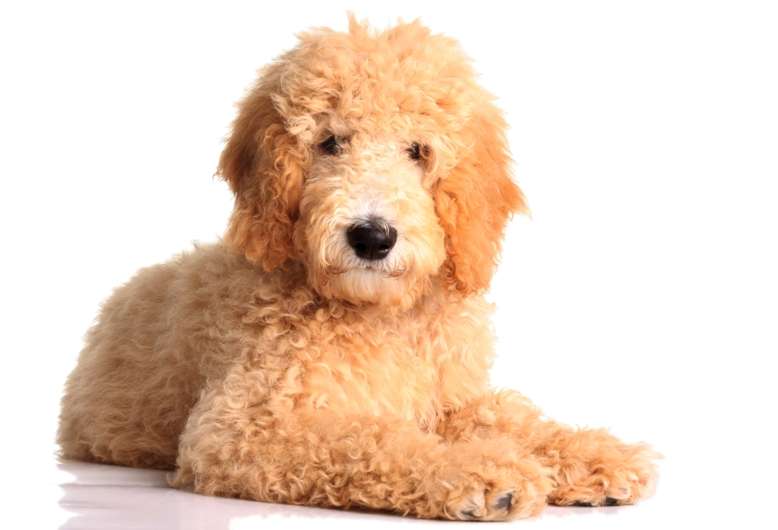
Golden Doodle puppy 
Brown Labradoodle
Some popular crossbreeds. Crossing other breeds with poodles can reduce shedding.
Giving a loving home to a rescue dog is appealing to lots of people, but rescue dogs by their nature are an unknown quantity. Fortunately today the best animal sanctuaries take the time to assess each dog they take in, so that they can give potential adoptive families a realistic idea of what to expect on adoption. This decreases the chance the adoptive family won’t be to cope, as rescue dogs can have serious social and behaviourial problems as a result of their previous experiences.
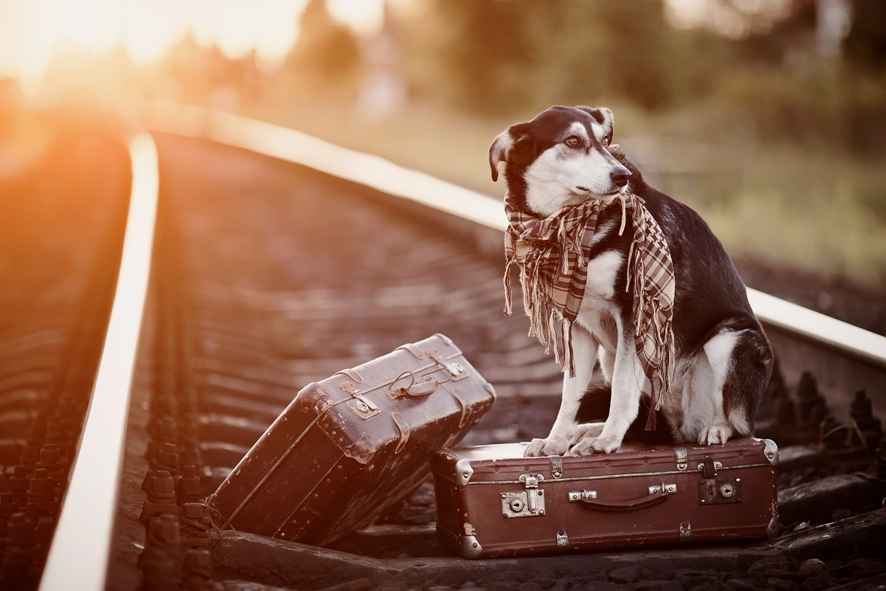
Admirable though it is to want to give a loving home to a rescue dog, make sure you choose a reputable sanctuary which has carefully assessed the dog’s temperament and needs. The last thing you want is to to be unable to cope with an already traumatised dog…
It should also be noted that neither crossbreeds nor rescue dogs are immune to the health problems that can affect pedigree dogs: it is simply harder to predict either the likelihood or the particular nature of what they might be. Is getting a dog the right thing for you? Only if you are prepared for the downsides, as well as the pleasures and the benefits.
What size and type?
Should you choose a large or a small dog? This depends on the size of your house, your garden, your family and how much exercise you will realistically be able to provide. A large dog needs more space, while a working dog is likely to need more exercise.
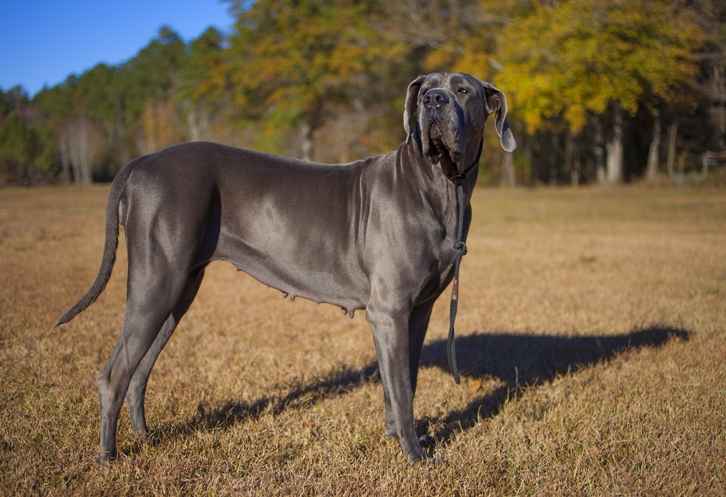
This Great Dane bitch is a magnificent animal, but unless you have a large house and garden and you regularly walk 5-10 miles a day, you should think carefully before getting a dog of this size…
Do you mind how much the dog will moult, or would you prefer a breed that doesn’t shed its coat? Don’t underestimate the increased level of dirt a dog can introduce to your house, even it it doesn’t actually cover your furniture and carpets with dog hair. Muddy paws and wet coats, especially in winter, are inevitable.
How active a dog do you want? How territorial? What about the likelihood of the dog showing aggression, either to other dogs or to people? These qualities are all closely allied to the breed type, and can be more difficult to predict in crossbreeds and mongrels.
What age?
A puppy will need a great deal of your time; to play with it, socialise it and to train it to be a properly civilised dog. An adult dog should already have learned these things, but it’s previous owner may have had different ideas from yours about what makes a well socialised dog.
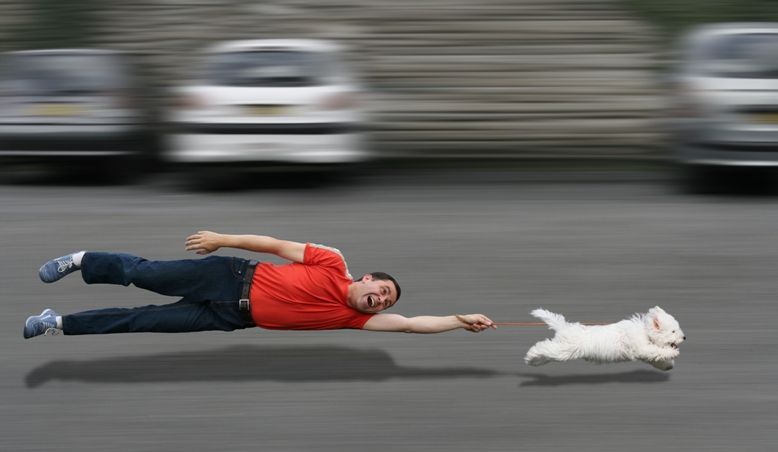
Not everybody has the same ideas about socialising dogs…
A puppy can be brought up to fit into your household; whereas an adult dog may find it more difficult to learn your ways. But a puppy also needs to be house-trained; and will spend its early months wanting to chew and possibly destroy everything in sight. Are you ready to tolerate this?
Is getting a dog the right thing for you? You must be realistic about whether or not bringing up a puppy is the right thing for you. A bored, lonely and frustrated dog can destroy your home and be an intolerable nuisance to your neighbours as well.
How Many Dogs Should You Have?
Having a companion may stop your dog being lonely, but acquiring 2 dogs at the same time is not usually a good idea. Training 2 puppies at once is very difficult, as you really need to give individual time to each dog, and train them separately as much as possible. They are also likely to form a stronger bond with each other than with you, which will hinder and weaken your relationship with them.
If you are thinking of getting a companion for your existing dog, then you should consider your present dog’s temperament and whether it is likely to welcome what it may see as a rival. Some breeds are happy to adapt to new arrivals, some aren’t. If you are uncertain, then having another dog as a temporary guest can help give an indicaton of where your dog stands on the companionabilty scale.
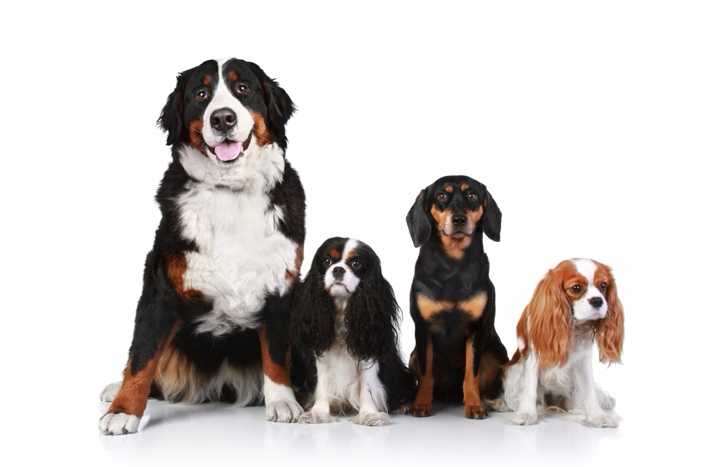
Having a family of dogs is wonderful, but only if they can get on with each other…
But having a canine friend to play with on walks, as a companion when you are out, and to snuggle up with at night is a great thing for lots of dogs. Personally I have always had at least 2 dogs, and often more, but Cavaliers are a naturally sociable breed who are happy to share their love with other dogs and people (and even cats…), so they are not necessarily typical. Terriers, for instance, can be much more territorial, and are more likely to be one-man dogs. So it’s important to take this kind of decision on an individual dog basis.
Is getting a dog the right thing for you? You must be sure of the answer before you decide to go ahead and get one.



